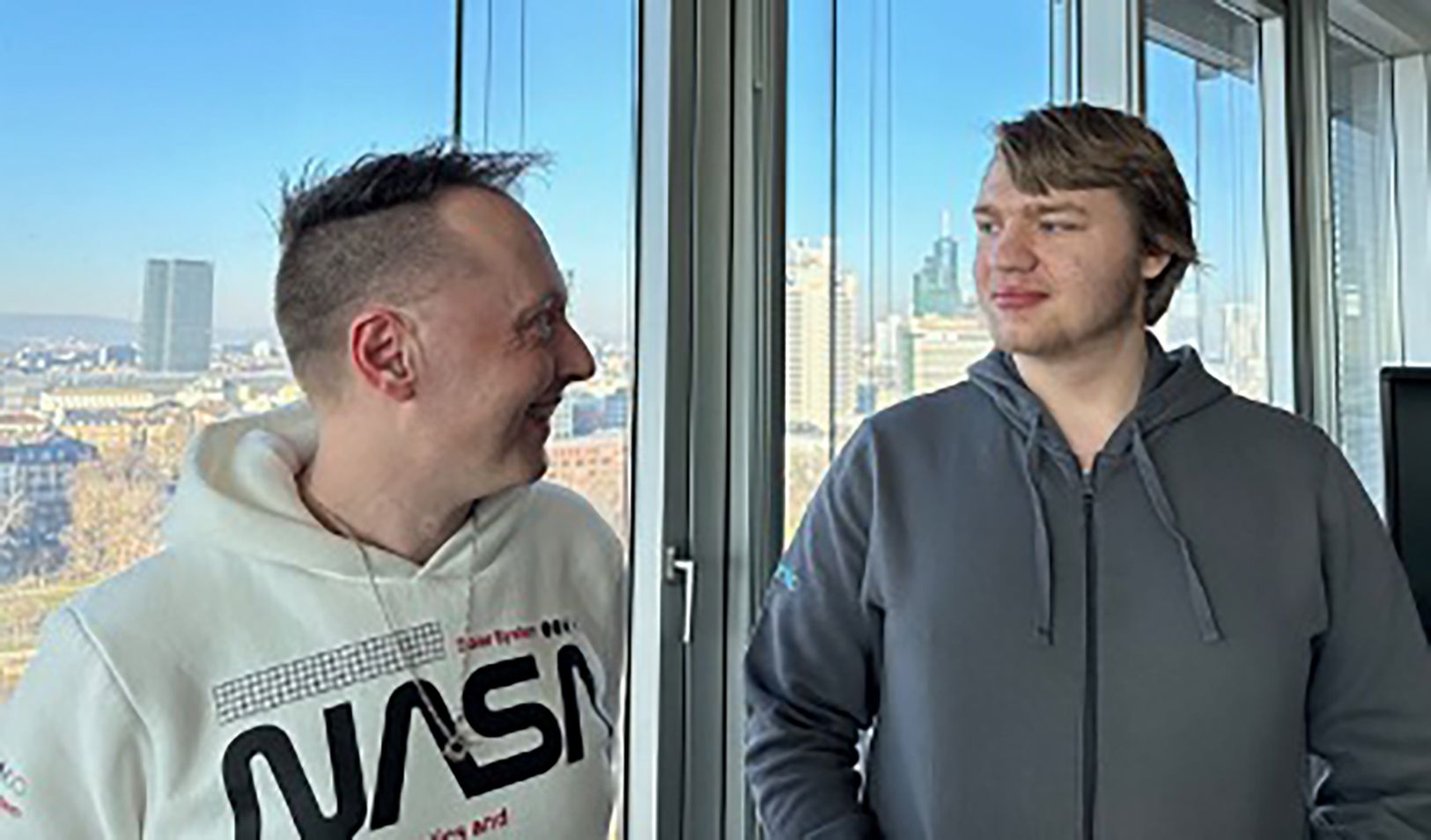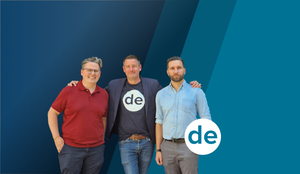Today we want to give you an insight into the training program of an IT specialist. I am going to interview our Senior DevOps Engineer and instructor Patrick Fedick and his current trainee Nick Rudak. DENIC has been a training company for IT specialists and administrative professions for many years.

1. Nick, could you tell us first of all why you decided to train as an IT specialist and which expectations you had regarding this profession?
I've always been interested in computers, hardware and programming, so this profession was the obvious choice for me to delve deeper into the subject and turn my hobby into a career.
2. Patrick, can you as an instructor give us a brief outline of the IT specialist training at DENIC?
Who trains at DENIC will learn their profession in a company that is unique in Germany and that is part of Germany's critical infrastructure. So you can get knowledge you can't acquire elsewhere.
During their training, our trainees work in all technical teams and also have the opportunity to get a taste of the non-technical areas. As to the content, we follow the training regulations of course.
To ensure a good start, the trainees mostly work in the office at the beginning, but home office is also possible. It is also very convenient that the vocational school is only a few minutes' walk from the DENIC office.
3. That sounds like a very versatile training program. Nick, how do you experience the great diversity in the everyday training?
The topics and tasks are so varied that every day is interesting and time passes really quickly. For instance, I don't just have to sit at the computer, but can also go to the data center to see how it is set up and install and wire servers or network devices myself.
Moreover, I can ask my colleagues at any time if I get stuck or don't understand something at school. They will always help me and that’s really great.
4. What career options do young IT specialists have and are there opportunities for further training?
IT specialists are real all-rounders who are well versed in all technical areas and can be employed for many different jobs. Due to the increasing digitisation, these young specialists are in high demand. But if our trainees have graduated with a good qualification, we are happy to keep them on and promote their professional development. We have already supported several former trainees in taking a dual study program.
5. Patrick, you just mentioned digitisation. Which of the current trends and developments in information technology are of particular importance to future IT specialists, and how are these integrated into the training?
What we want first of all is to ensure that our trainees are well prepared for their professional future and the topics related to it. Innovations like cloud technology, cyber security or artificial intelligence are on the agenda in our projects and seminars – also for our trainees.
At DENIC, innovation, cooperation and transparency are rated high. In our practical work, we live this in our communication and through continuous further development. Diverse knowledge and experience are important assets in this context. Learning and development are also promoted by regular meetings, participation in conferences, further education and flexible working structures. We have established a day once a month on which we exchange experiences or simply try something new together.
6. Nick, how has this been reflected in your training so far? Which project will you remember and where have you learnt the most?
I learnt the most from the practical work. The support of my colleagues here was absolutely great and they always integrated me as much as possible. For instance, when we moved to a new office building, we closed down a data center. I was given a lot of the old hardware, servers, routers and other things, to experiment with. I took everything apart, put it back together and configured it, which taught me an incredible amount about hardware.
7. Patrick, you said that IT specialists are real all-rounders. Nevertheless, the job profile is becoming more and more specialised. Can you briefly explain why?
System integration and application development have been in existence for some time now, and we have successfully trained people in these fields for years. In 2020, two further specialisations were added: data and process analysis and digital networking.
System integration includes planning, installing, maintaining and administering systems and networks.
Application development specialises in the development of software.
Data and process analysis deals with analysing large amounts of data (big data), in particular for the analysis and optimisation of business processes.
Digital networking is responsible for planning, setting up and managing IT networks.
8. Which field did you choose, Nick?
When I prepared to apply for training positions, I was not yet familiar with the two new specialisations. So, I looked into system integration and application development and applied for a training in these two fields. But now I'm glad that I'm doing the system integrator, as it offers highly varied tasks and I really enjoy the training content. And there's also programming involved.
9. Patrick, what expectations must a prospective IT specialist meet who wants to apply for a training program at DENIC?
I expect people who are open to new things and continuously seek development. And, of course, they must be enthusiastic about IT, which can show, for example, in a hobby or internships. It also is important for the applicant to be able to work both in a team and independently. Good grades in Maths, German and English are an advantage.
Naturally, the application documents should be complete, and the letter of application should not be run-of-the-mill. Moreover, the applicant should make clear in the interview why they are interested in the training and why they chose DENIC.
And during the training program, they should be curious, question things and try things out. Above all, they shouldn't be afraid to ask questions if they don't understand something.
10. Nick, you certainly have some tips for others for their application or training.
Well, I was supported by the Gesellschaft für Jugendbeschäftigung (GJB) in writing my applications. They offer this free of charge. The employment agency was helpful too
Before I started the training program, I had asked my trainer which topics I was going to deal with. And I had already got a bit familiar with them during the summer break.
The changeover from school to working life was a bit difficult at first – you have so much less free time. And flexitime is tempting at first glance, but coming in later also means finishing work later ;-)
Thank you very much for these interesting insights into training at DENIC and the job profile of an IT specialist. And good luck to you, Nick, for the final exam in spring. (The exam period extends from April to July.)
As an employer, DENIC accompanies its employees during various phases of their life. If you interested in this topic, we also recommend the following reading:
DENIC's internal development options: Interview with Dorit Richter of the DENIC Information Security Team















